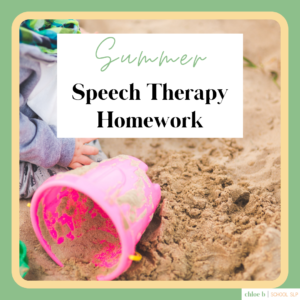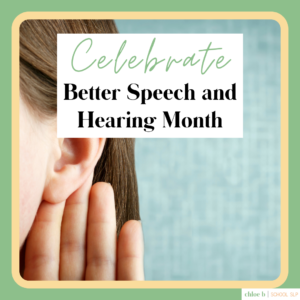As a parent, it can be so overwhelming to learn about an IEP for school. Like what does IEP even stand for? How will it impact my kid? What do I need to do or be prepared for with this big conference coming up? Let’s just dive into the basics then we’ll talk about 5 things parents need to know.
What is an IEP for School?
An IEP is an individualized education program. It’s basically a detailed plan that explains the services, goals, and support that your child will have at school. The individualized part is key because it should not be a one-size-fits-all program. This IEP document should be customized and reflect your child’s strengths and needs appropriately.
The IEP is a large document that typically has pages for the following –
- parent input (yes your input is important!!)
- duration of services (when does this IEP expire?)
- present levels of performance (strengths, needs, data to support, progress on goals, etc.)
- services (who is doing what with your child)
- goals (what those people want your child to accomplish)
- accommodations/modifications (ways the environment or curriculum can be tweaked to best support your child)
- least restrictive environment (is he/she in with general education as much as possible while still meeting needs?)
- information for standardized assessments, special programs, extended school year, or other considerations
- list of everyone in attendance (should include parent, general education teacher, local education agency (someone from the school) and anyone providing services like teachers/therapists)
- signature page (they can’t put your child in services without your permission!)

Why Do Some Students Have IEPs?
Students who qualify for special education services and are placed in services due to meeting eligibility criteria + the presence of an adverse effect in their education/classroom performance.
Most students who receive self-contained, resource, or inclusion help from a special education teacher have an IEP. Students who receive speech-language therapy, occupational therapy, or physical therapy typically have an IEP as well in order to be seen for those services.
A similar option that you might have heard of before is a 504 plan. Both plans offer accommodations, but only an IEP offers specialized instruction. Students who have ADHD and just need a little extra time to be successful may benefit from a 504 plan where a student with a learning disability would need the additional benefits of having an IEP to get specialized services and instruction.
If done correctly, IEPs can have a huge positive impact on the academic success of a student. As a parent, you aren’t expected to be an expert on what the school district can offer, the different diagnoses or services. You simply need to be an expert on your child. Which you already are!!

5 Things Parents Need to Know About IEPs
1. Your input during the development of your child’s IEP is crucial. Like I said above, you don’t have to be an expert on anything but your child. Ask questions! Voice your opinion! You know your child best.
2. IEPs are not forever. They typically last a year before they need to be renewed again. This is great news. Your child may not need certain services or accommodations forever. Every year things need to change, especially the goals! There is always room for improvement!
3. As a parent, you have SO many rights. Learn about them! Your district is required to give you a copy of your rights under IDEA. It’s a lengthy document so don’t be afraid to Google a synopsis. But know. your. rights.!! I can’t stress this enough. You have the right to call IEP meetings. You have the right to bring whoever you want to IEP meetings like an advocate or someone who works with your child outside of school like a tutor.
4. Ask about what you can do at home to better support your child. Should you read to them a little bit every night to help with literacy skills? Should you make sure their AAC (communication device) is accessible 24/7 and modeled to your child along with spoken words? Find out what you can do to support their needs and your teachers/therapists will love you for it!
5. Remember that everyone is on the same team! Your child’s teachers/therapists truly love your child and want what’s best for her/him. Sometimes this can be difficult with behaviors or limited resources, but ultimately everyone at the table should have the same goal – your child’s success! Working together is the best way to ensure that goal becomes a reality!
There is SO much more that needs to be discussed about IEPs,
so stay tuned for more posts. But if you have any questions just comment below or DM me on any of the socials! I’m @emilybschoolslp on them all!
For more related blog posts, check out What are the WH Questions.
-Chloe B | School SLP






One Response